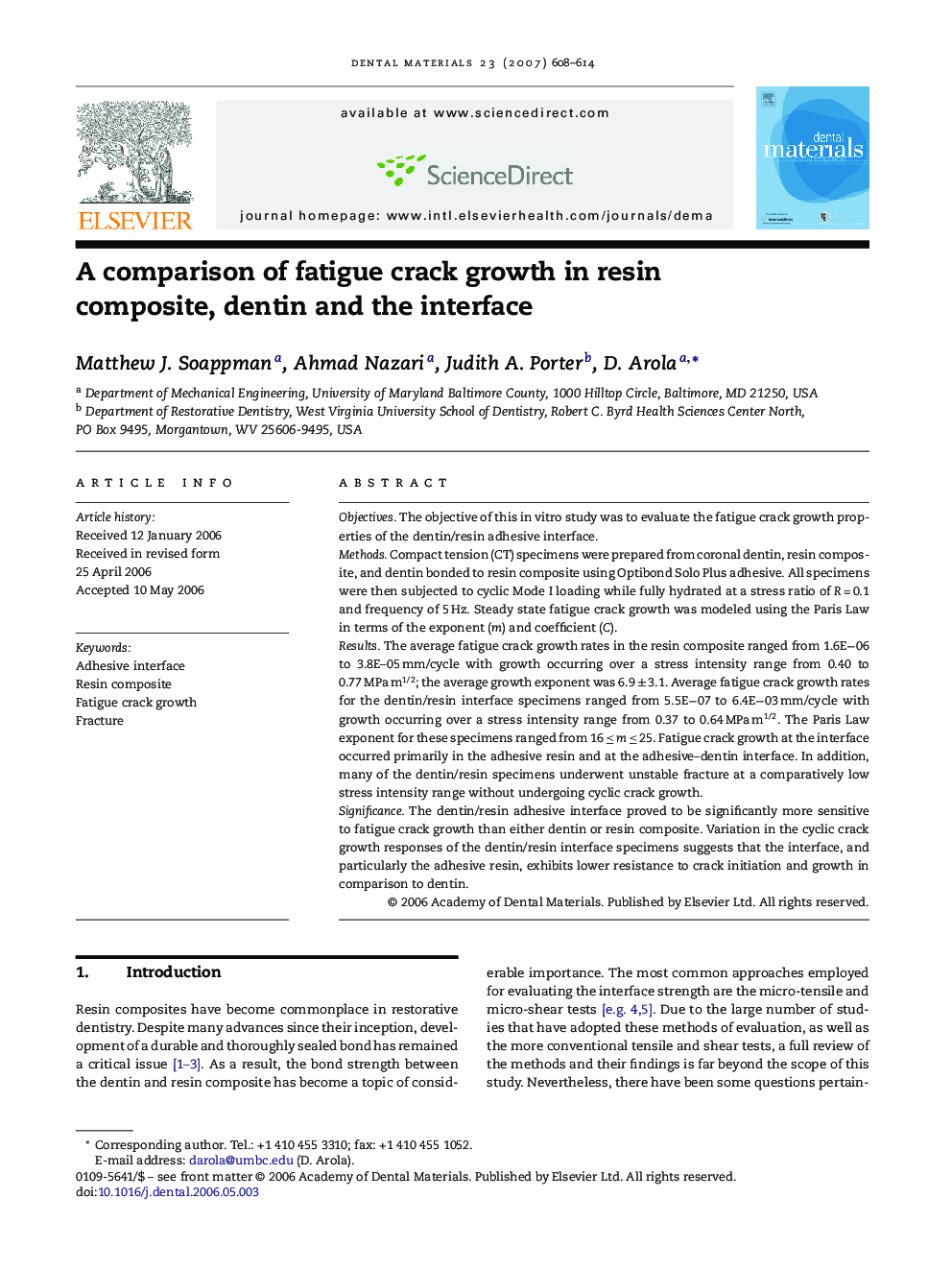| Article ID | Journal | Published Year | Pages | File Type |
|---|---|---|---|---|
| 1423355 | Dental Materials | 2007 | 7 Pages |
ObjectivesThe objective of this in vitro study was to evaluate the fatigue crack growth properties of the dentin/resin adhesive interface.MethodsCompact tension (CT) specimens were prepared from coronal dentin, resin composite, and dentin bonded to resin composite using Optibond Solo Plus adhesive. All specimens were then subjected to cyclic Mode I loading while fully hydrated at a stress ratio of R = 0.1 and frequency of 5 Hz. Steady state fatigue crack growth was modeled using the Paris Law in terms of the exponent (m) and coefficient (C).ResultsThe average fatigue crack growth rates in the resin composite ranged from 1.6E−06 to 3.8E–05 mm/cycle with growth occurring over a stress intensity range from 0.40 to 0.77 MPa m1/2; the average growth exponent was 6.9 ± 3.1. Average fatigue crack growth rates for the dentin/resin interface specimens ranged from 5.5E−07 to 6.4E−03 mm/cycle with growth occurring over a stress intensity range from 0.37 to 0.64 MPa m1/2. The Paris Law exponent for these specimens ranged from 16 ≤ m ≤ 25. Fatigue crack growth at the interface occurred primarily in the adhesive resin and at the adhesive–dentin interface. In addition, many of the dentin/resin specimens underwent unstable fracture at a comparatively low stress intensity range without undergoing cyclic crack growth.SignificanceThe dentin/resin adhesive interface proved to be significantly more sensitive to fatigue crack growth than either dentin or resin composite. Variation in the cyclic crack growth responses of the dentin/resin interface specimens suggests that the interface, and particularly the adhesive resin, exhibits lower resistance to crack initiation and growth in comparison to dentin.
